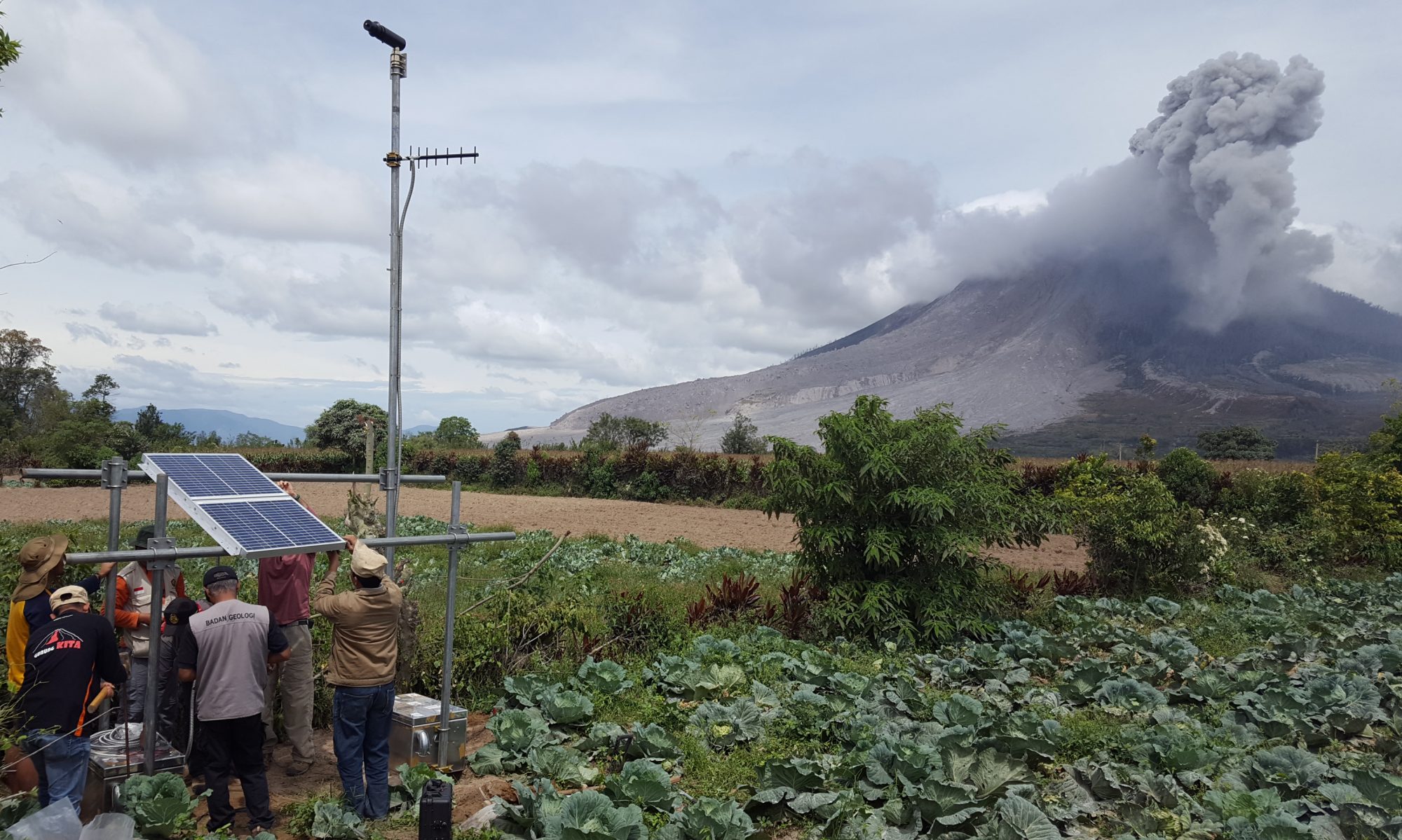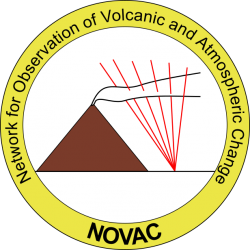What is NOVAC?
The Network for Observation of Volcanic and Atmospheric Change (NOVAC) is a community of volcano observatories and research institutions that together develop and apply ultraviolet differential optical absorption spectroscopy (DOAS) instruments to measure volcanic gas emission rates. The collected data are used for assessment of volcanic activity, eruption forecasting, research on volcanic processes, and studying the atmospheric impact of volcanic degassing. Together, the institutions participating in NOVAC run the largest instrument network for monitoring gas emissions from volcanoes around the world.
What are the goals of the NOVAC community?
NOVAC aims to connect scientists and technical staff from participating institutions to facilitate exchange of knowledge and experience. In particular, the community has the following goals:
-
- To develop state-of-the-art DOAS instrumentation for continuous measurements of volcanic gas emissions
- To provide a means for obtaining standardized, hardened DOAS instrumentation that is specifically built for continuous monitoring of volcanic degassing
- To establish a means for obtaining technical support related to installation and operation of DOAS instruments
- To develop best practices and automated software for analyzing data collected by DOAS instruments to obtain gas emission rates
- To improve the current understanding of volcanic processes, in particular those leading up to eruptions, by jointly collecting, comparing, and interpreting data from volcanoes all over the world
- To organize workshops that allow exchange of ideas and experience between partners in the NOVAC community
- To foster relationships between observatories and research institutions, thus allowing for more sustainable monitoring efforts and providing data for fundamental research questions in volcanology
- To make the NOVAC data available to the community, e.g. through public data bases

